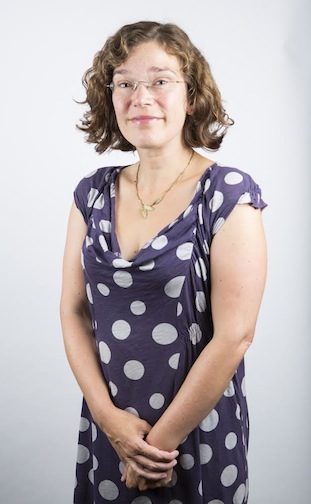|
I am a historian, and a passionate believer in the power of history as a tool for understanding and answering the challenges of the present. I grew up in Kingston, Ontario, where I first fell in love with the study of the past as a high school student, and then as a History major at Queen's University. Between my BA, my Master's degree (University of Toronto, 2001), and my DPhil (University of Oxford, 2008), I spent a number of years travelling the world, living in Japan, China, Italy and France – and observing, in each country, the long afterlife of the Second World War in family, community and official memory. These observations have had a profound influence on all my work as a historian.
I completed a DPhil at the University of Oxford that focused on the development of Holocaust commemoration in postwar France and Italy. Drawn into the topic by my interest in war memory, I was curious to see why and how these two states, with their histories of collaboration in the persecution of their Jewish populations, worked towards acknowledging their own wartime role as persecutors. I quickly realised that the state was often a rather reluctant actor in this process, and that it was small groups of committed individuals – ‘memory activists’, we could call them – who pushed national governments to face their wartime histories. Indeed, I argue that we need to fundamentally rethink our understanding of the relationship between official and vernacular versions of the past: ordinary people have far more say in collective memory than we generally acknowledge. This doctoral work led to my first book, Commemorating the Holocaust: The Dilemmas of Remembrance in France and Italy, which was published by Oxford University Press in 2013. My second major project was a collaboration with thirteen other historians on the history of activism in Europe in the 1960s and 1970s. The largest such project ever carried out, our team conducted nearly 500 interviews with former activists in fourteen different countries, and published a collaboratively-written book, Europe’s 1968: Voices of Revolt, with Oxford University Press in 2013. The book traces the pathways of activists in and out of a wide array of different protest movements – from the New Left through feminism, workers’ protests, cultural dissent, religious activism and more – and looks at the lasting repercussions for individuals and communities of participation in protest. I am currently working on a new book on child Holocaust survivors and their postwar lives. Coming back to the idea that individuals have much more than a passive relationship with collective memory, this new book will look at how these youngest survivors of the Holocaust wrestled with their own memories as the public ‘memory’ of the genocide changed over the seven decades between 1945 and the present. The book will show that the relationship between public and personal memory is far more dynamic, tangled and interactive than most historians have assumed, and that the experience of children in war can have particular – and particularly dramatic – repercussions for the postwar memory of a conflict. I am grateful to have received generous funding from the British Academy – Leverhulme Trust to carry out the research for this project. I am based at Swansea University in Swansea, Wales, where I teach undergraduate and graduate students contemporary European and global history, and supervise student research on varied aspects of memory studies and the history of protest in the twentieth and twenty-first centuries. I always welcome correspondence from potential students interested in working with me. I have recently completed a Visiting Fellowship at Georgetown University in Washington, DC. |

